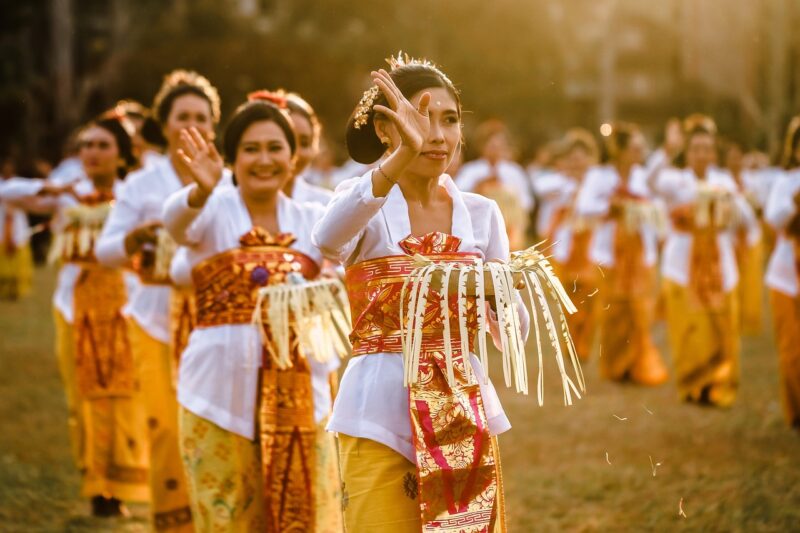Global Cultures: A Deep Dive into Traditions That Define Us
November 19, 2024

Culture is the heartbeat of humanity, rich with the traditions, beliefs, and practices that shape our identities. This article takes a closer look at the diverse cultures that intertwine across continents, exploring how traditions form the core of communities, influence daily life, and create a sense of belonging and purpose.
1. The Essence of Culture
Culture encompasses a wide array of elements, including language, cuisine, art, rituals, and social habits. A defining trait of any culture is its traditions, which are often passed down through generations. These traditions reinforce a sense of identity and continuity, providing societies with shared norms and values.
For example, consider the importance of family-oriented traditions in many societies. These practices foster community bonds and often manifest through gatherings, celebrations, and rites of passage that celebrate milestones such as births, weddings, and funerals. The passing on of family recipes, festive customs, or storytelling methods solidifies generational ties.
2. Celebrations Around the World
Festivals and celebrations are vivid expressions of culture, showcasing unique traditions from around the world. Here are a few remarkable examples:
- Diwali (India): Known as the Festival of Lights, Diwali symbolizes the victory of light over darkness. Celebrated with vibrant decorations, fireworks, and family feasts, this festival emphasizes joy, love, and new beginnings.
- Oktoberfest (Germany): A 16- to 18-day festival held annually in Munich, Oktoberfest celebrates Bavarian culture with traditional food, music, and, notably, beer. It’s a time for communities to come together and revel in festivity.
- Lunar New Year (China and other East Asian countries): This significant holiday, marked by family reunions and lively parades, ushers in a fresh start. Practices like giving red envelopes and lion dancing are fundamental traditions that depict prosperity and happiness.
These celebrations not only preserve cultural identity but also enhance social ties and foster love among community members.
3. Culinary Traditions: Food as Identity
Food is more than just sustenance; it is a formidable form of cultural expression. Culinary traditions reflect local ingredients, historical influences, and social practices that define communities. The way meals are prepared, served, and enjoyed can reveal deep cultural meanings:
- Italian Cuisine: A hallmark of Italian culture is its recipes that emphasize regionalism, with differing ingredients and dishes across Italy’s provinces. Traditional Sunday dinners laden with family recipes represent connection and heritage.
- Japanese Tea Ceremony: More than a mere ritual of serving tea, this practice embodies harmony, respect, purity, and tranquility. It emphasizes mindfulness in every action, revealing a philosophical underpinning that transcends food.
- Mexican Day of the Dead (Día de los Muertos): A vibrant celebration of life and death, families prepare traditional foods such as sugar skulls, mole, and pan de muerto to honor their deceased. Through food, they cultivate a connection with their ancestors.
As we savor these culinary traditions, we taste the stories that shape our global community.
4. The Role of Language in Cultural Expression
Language serves as a cornerstone of culture, allowing communities to express their values, beliefs, and stories. Each language carries unique idioms, proverbs, and folklore that reflect the cultural context from which it arises. The loss of a language often symbolizes the fading of a culture.
Consider the following:
- Inuit Languages: With rich vocabularies related to their environment, the Inuit languages highlight the significance of nature in their culture. Each word can describe different types of snow, winds, and animals used in their daily lives.
- Native American Languages: Many Native American tribes employ language as a means of storytelling and conveying history, embedding deep lessons within their oral traditions.
- Japanese Language and Culture: The nuances of the Japanese language often align with its cultural values, where respect and honor prominently influence communication styles. Concepts like “kaizen” (continuous improvement) illustrate deeply held beliefs about personal and communal growth.
Language is essential in preserving history and imparting cultural wisdom to future generations.
5. The Interplay Between Tradition and Modernity
Culture is not stagnant; it evolves as societies adapt to new experiences, technologies, and globalization. While many communities strive to maintain their traditions, they also contend with modern influences:
One striking example is how music has become a unifying force worldwide. Genres like hip-hop, reggae, and K-pop have transcended borders, melding traditional elements with contemporary styles. This interplay has led to new cultural expressions and hybrid identities.
However, modernization can also threaten traditions. The loss of rituals, languages, and practices can occur as globalization promotes uniformity. Nations now face the challenge of balancing the preservation of their cultural heritage against the urge to adapt and innovate.
6. Conclusion: Embracing Cultural Diversity
In our increasingly interconnected world, understanding and appreciating global cultures is essential. Traditions define who we are, influencing our identities, and uniting us through shared experiences. As we navigate the complexities of modern life, fostering respect for cultural diversity will enhance our collective humanity.
In celebration of this cultural mosaic, let us continue to explore, learn, and embrace the richness that different cultures offer.
By recognizing the value of diverse traditions, we empower communities, honor legacies, and deepen our connections to one another. Together, let’s cherish the tapestry of human experience that binds us all.
Whether through festivals, culinary arts, music, or language, culture enriches our lives, helping us to learn from one another while keeping cherished traditions alive for future generations.







